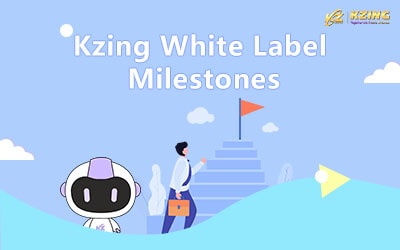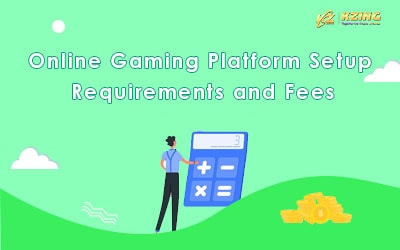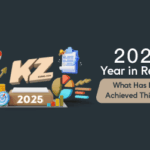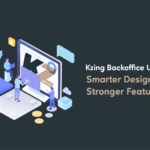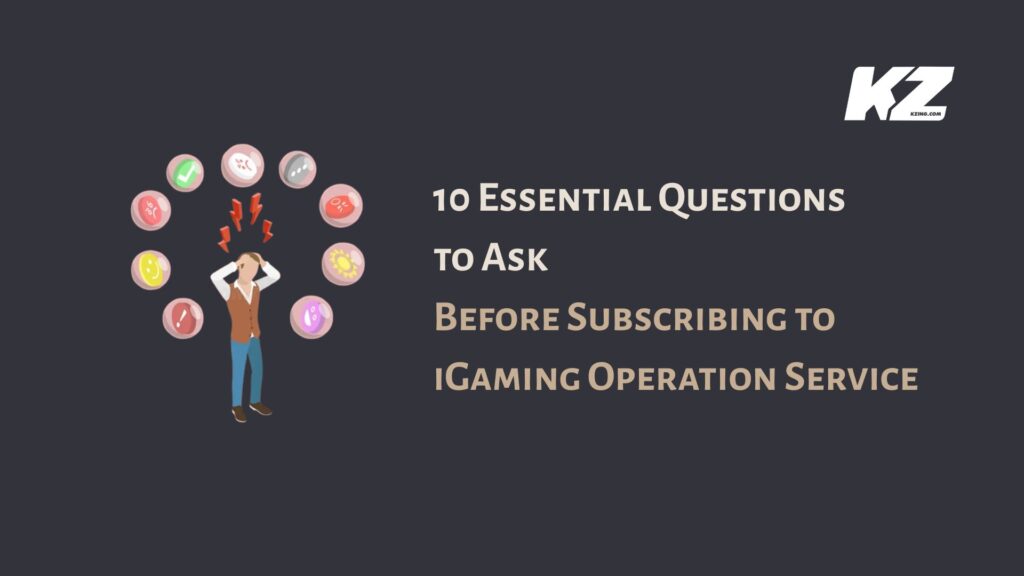
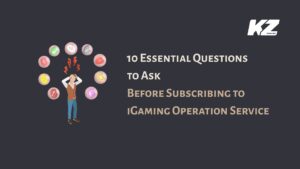
In the iGaming industry, the concept of iGaming Platform Provider has become an essential model for operators. For newcomers, the question often starts with “what is the meaning of iGaming Platform Provider?”. But if you are already familiar with the basics, the more critical concern is not the definition—it is how to choose the right service provider and what to clarify before signing a contract.
Subscribing to an iGaming operation service is not simply a technical choice; it is a long-term strategic decision. Overlooking important details may lead to wasted resources, compliance risks, and even market failure.
This article dives deep into the 10 questions you must ask your iGaming provider before committing to their services.
Table of Contents
- 1. What is the exact scope of the iGaming Operation Service?
- 2. Is the pricing model transparent? Are there hidden fees?
- 3. Does the technical infrastructure support scalability?
- 4. Does it support multi-market compliance?
- 5. Does the game portfolio ensure differentiation?
- 6. Is the payment system secure and diverse?
- 7. How robust is the data security and risk control?
- 8. Is operational support included?
- 9. What is the provider’s reputation and track record?
- 10. Are the contract details crystal clear?
- Conclusion
- Why Choose Kzing?
1. What is the exact scope of the iGaming Operation Service?
Many providers promote themselves as “all-in-one” solutions, but the actual scope can vary dramatically.
Commonly included services:
- Front-end and back-end system setup
- Integration of game APIs (slots, live casino, lottery, sports, etc.)
- Payment channel connections (local payment methods, third-party processors, crypto wallets)
- Customer management systems (CRM, affiliate tools, loyalty systems)
- Server hosting and security protection
But you must clarify further:
- Does it include license acquisition or compliance advisory?
- Are there training and operational support beyond system delivery?
- How many third-party game providers are integrated, and are they reputable?
Failing to confirm scope often leads to unexpected add-on costs later.
The essence of iGaming Operation Services is “renting plus technical services,” but pricing can be complex.
Possible cost structures include:
- Monthly or yearly subscription fees
- Revenue share from games or API usage
- Transaction fees from payment gateways
- Extra charges for customization or exclusive features
Red flags to watch for:
- Initial quotes that look cheap but later come with hidden “maintenance fees” or “traffic charges.”
- Vague revenue-sharing terms that eat into your margins.
Always demand:
- A clear cost breakdown upfront
- Contract clauses that lock in fees and prevent sudden markups
3. Does the technical infrastructure support scalability?
Startups often launch small, but success depends on whether the system can handle rapid growth.
Questions to ask:
- Does the server support horizontal scaling for high concurrency?
- Can the backend manage multi-language, multi-currency, and multi-domain operations?
- Are APIs stable during peak traffic periods (e.g., sports finals or festive seasons)?
A poor system might crash at 1,000 concurrent users, while a robust provider can handle tens of thousands with ease.
4. Does it support multi-market compliance?
Legal frameworks differ across regions.
Examples:
- PAGCOR in the Philippines offers licenses for international operations.
- Cambodia used to issue licenses but has tightened policies in recent years.
- Vietnam, Thailand, and India are gray zones with stricter monitoring.
Ask your provider:
- Do they offer license assistance or partnerships with regulated jurisdictions?
- Is the system equipped with geo-blocking/IP filtering to avoid illegal traffic?
- Do they have compliance experts for sudden regulatory shifts?
5. Does the game portfolio ensure differentiation?
Most iGaming Service Providers integrate mainstream suppliers (PG, Pragmatic, Evolution), but differentiation is crucial.
Key considerations:
- Do you get exclusive partnerships or early access to new releases?
- Is there localized content (e.g., fishing games in Southeast Asia, local card games in India)?
- Are the games mobile-optimized for on-the-go players?
Player retention relies heavily on unique and localized content, not just standard libraries.
6. Is the payment system secure and diverse?
Payments are the backbone of any iGaming platform.
What to check:
- Does it support local payment methods (e.g., DuitNow in Malaysia, PromptPay in Thailand)?
- Are crypto wallets integrated for international reach?
- Is there an AML system (anti-money laundering) to avoid frozen accounts?
Without reliable payment channels, even the best games won’t retain players.
7. How robust is the data security and risk control?
Many assume security means “anti-DDOS,” but in iGaming, it goes far beyond that.
Confirm with your provider:
- Is there a fraud detection system to monitor abnormal betting behavior?
- Are player databases encrypted to protect sensitive information?
- Is there a disaster recovery system with daily backups?
Weak risk management can expose you to fraud, hacking, or financial manipulation.
8. Is operational support included?
Technology is important, but operations drive growth.
Ask your provider:
- Are there marketing tools (affiliate systems, cashback, promotional campaigns)?
- Do they provide customer service scripts and training?
- Are there data analytics dashboards to track player behavior and retention?
A provider that only delivers systems but not operational support leaves you struggling on your own.
9. What is the provider’s reputation and track record?
An iGaming Platform Provider partnership is a long-term dependency.
Due diligence checklist:
- Does the company have over 5 years of industry experience?
- Have they served international Tier-1 or mid-tier clients?
- Do they have a history of delayed settlements or disputes?
The wrong provider could destroy your business within months.
10. Are the contract details crystal clear?
Finally, the contract is your safeguard.
Ensure it explicitly covers:
- Service scope, fee structure, and payment schedule
- Technical deliverables and service-level agreements (SLAs)
- Ownership of data (especially player information)
Vague contracts often lead to expensive disputes.
Conclusion
For newcomers, the question “what is the meaning of iGaming Platform Provider?” is about quick market entry. But for industry insiders, the real question is: “What must I confirm before committing to a iGaming Operation Services provider?”
Your success depends on clarity, scalability, compliance, and long-term support.
Remember:
The right provider becomes the foundation of your growth.
The wrong one may push you out of the market within six months.
Why Choose Kzing?
Among many service providers, Kzing stands out as a trusted partner for operators in Southeast Asia and beyond.
Here’s why:
- Full-spectrum solutions: From comprehensive packages to international packages, plus customizable game portfolios.
- Advanced technology: High-concurrency systems with layered security for uninterrupted operations.
- Regulatory expertise: Proven knowledge of markets such as the Philippines, Cambodia, and Malaysia, reducing compliance risks.
- Powerful operational tools: Built-in affiliate systems, marketing modules, and loyalty mechanics to drive player acquisition and retention.
- Proven credibility: Over 10 years of experience, serving 100+ platforms with a reputation for reliability and transparency.
If you are ready to grow your iGaming business, Kzing is more than a service provider—it is a long-term strategic partner.
Follow Kzing White Label:
Website: https://kzing.co/
Demo Site: https://kzkzb.com/
Telegram: https://t.me/kzingofficial
Facebook: https://www.facebook.com/kzingofficial
Instagram: https://www.instagram.com/kzingwhitelabel/
YouTube: https://www.youtube.com/channel/UCQso0Xct-YIsBFIxFAyzWiA
LinkedIn: https://www.linkedin.com/company/kzing-white-label-奇迹娱乐包网/

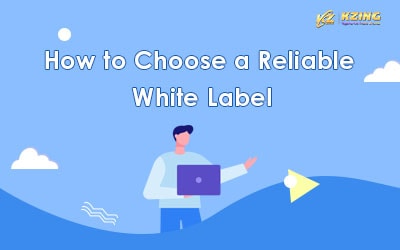

![Choose a White Label Provider That Suits Your Needs DW_Article_6_White_Label_Provider_That_Suits_Your_Needs文章封面_en_400x250[1]](https://www.kzing.co/wp-content/uploads/2024/03/DW_Article_6_White_Label_Provider_That_Suits_Your_Needs文章封面_en_400x2501-150x150.png)
